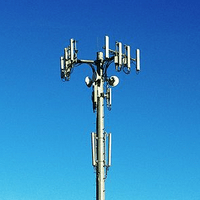To what extent does the ownership and management of a nation's information infrastructure represent a question of national security? This question is all the more important because of recent changes in the models by which IT infrastructures are currently deployed, owned, and used. In general, we use the term "protected industry" to refer to an industry or economic segment protected from external competition or influences (e.g., ownership likely to export production and jobs). Barriers to importation are raised to protect domestic industry from foreign competition, while foreign investment and ownership are blocked or restricted in some instances, both to protect domestic production and to preserve the economic benefits associated with a specific industry for domestic players.
National security interests may also drive perceptions of whether an industry must be "protected," even as changes in functional and economic models challenge the mechanisms available to provide this protection. A case in point was the 2006 debate over ownership of U.S. ports by Dubai Ports World, which gave rise to heated, though not necessarily well-thought-out discussion regarding whether or not port services represent a "protected industry." At the time, the Nuclear Threat Initiative (NTI) pointed out that "the U.S. does not have sufficient knowledge to perform a risk assessment on foreign operators already operating at U.S. ports." Dubai Ports further assured the U.S. that it would comply with the government's Container Security Initiative and employ "to the extent possible" a U.S. management structure. Nevertheless, the company ultimately ended its bid for U.S. port ownership -- not because of a regulatory outcome, but because U.S. public opinion and political rhetoric around the issue became too highly charged.
Protecting Telecom: The Historical Context

